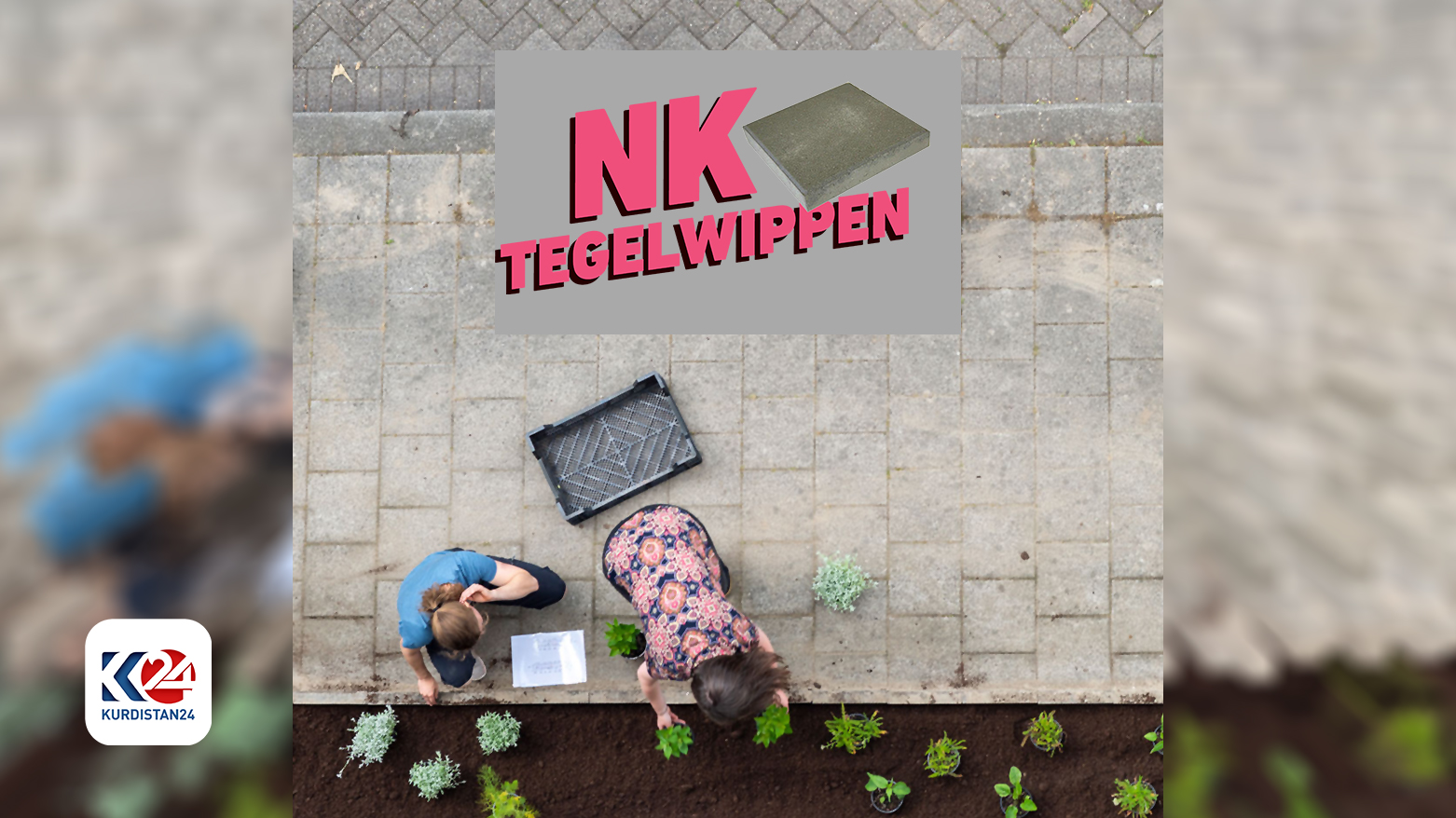Dutch competition transforms urban spaces by replacing stone tiles with greenery
The competition, known as the NK Tegelwippen, or "tile-flipping" contest, encourages residents to help cities adapt to climate change by ripping out heat-absorbing concrete paving stones and planting trees instead.

ERBIL (Kurdistan 24) – Renske, a 36-year-old Dutch woman, and her friends have made significant strides in greening their city garden by removing stone bricks and replacing them with plants, as part of a national competition aimed at increasing urban greenery.
The competition, known as the NK Tegelwippen, or "tile-flipping" contest, encourages residents to help cities adapt to climate change by ripping out heat-absorbing concrete paving stones and planting trees instead.
"This move is better in every way; the weather will be cooler, and the land absorbs rainwater," said Renske. Her garden, now flourishing with flowers and fragrant plants, features three large stone slabs, each weighing 25 kilograms, that were removed during the process.
The NK Tegelwippen, held annually from March to October since the outbreak of COVID-19, has gained popularity as a fun and impactful way to enhance urban environments.
Participants, like Renske, contribute to their city's green statistics, with The Hague aiming for a strong showing in the Metropolitan Division. Winners receive accolades such as "golden soil" or "golden stone tablets."
Eva Braaksma of the Frank Lee Foundation, which organizes the competition, emphasized the benefits of this initiative: "Stone bricks exposed to sunlight absorb heat, and tiles do not absorb rainwater. By removing them, we help combat rising temperatures in cities and contribute to a happier green space."
This year alone, the competition has seen about two million stone bricks removed from parks, bringing the total to over 10 million since its inception. The initiative not only promotes environmental sustainability but also helps address climate change challenges in the densely populated Netherlands.
